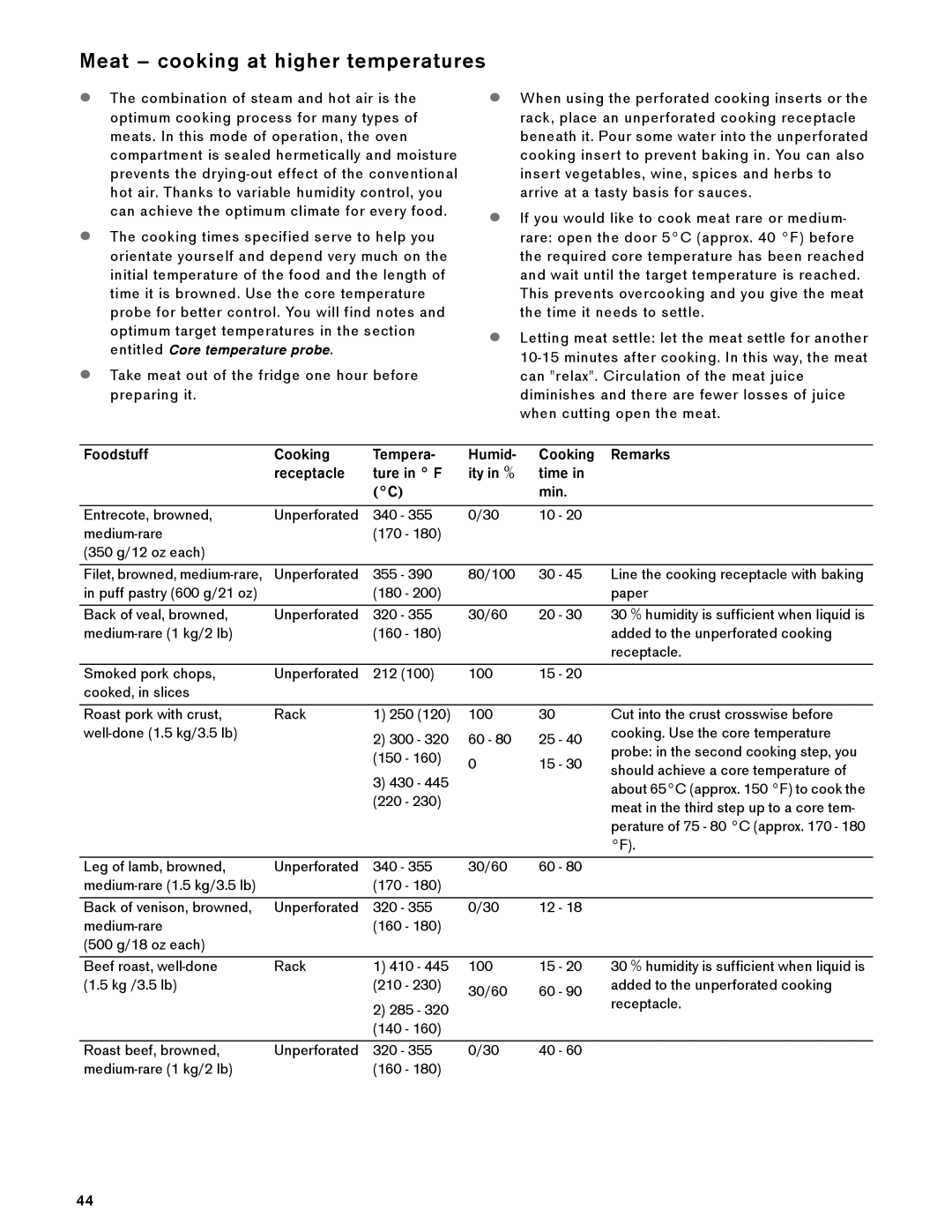BS 474/475 610, BS 484/485 610 specifications
Gaggenau, a name synonymous with premium kitchen appliances, continues to impress with its innovative offerings, particularly the BS 484/485 610 and BS 474/475 610 models. These built-in appliances exemplify the brand's commitment to excellence, blending functionality with sophisticated design.The BS 484/485 610 series consists of advanced steam ovens that redefine culinary experiences. One of the standout features is the combination of steam and convection cooking, which allows for enhanced flavor retention and moistness in dishes. This dual functionality opens up a world of possibilities, from baking bread to sous vide cooking. The integrated water tank makes it easy to operate without the need for an external water connection, offering flexibility in placement.
Both models feature precise temperature control, adjustable from 30°C to 100°C, ensuring perfect results whether steaming vegetables or reheating leftovers. The ovens also come equipped with a powerful convection fan that promotes even heat distribution, making it easier to achieve consistent cooking results every time.
The BS 474/475 610 series focuses on the art of baking with its fully automatic baking programs. These ovens utilize a patented moisture regulation system, providing optimal moisture levels for various types of baking, from crusty baguettes to delicate soufflés. The intuitive touchscreen interface enables users to select from a range of pre-set programs or customize their own.
Additionally, both series include a self-cleaning function, simplifying maintenance and allowing users to enjoy their culinary creations without the burden of extensive clean-up. The elegant stainless-steel design complements any modern kitchen aesthetic, and custom paneling options allow for seamless integration into cabinetry.
In terms of energy efficiency, both the BS 484/485 610 and BS 474/475 610 models are designed to minimize power consumption, adhering to the highest sustainability standards.
With their blend of sophisticated technology, sleek design, and user-friendly features, the Gaggenau BS 484/485 610 and BS 474/475 610 series stand as a testament to the brand's dedication to quality and innovation in the world of culinary appliances. They not only elevate the cooking experience but also enhance the overall aesthetics of the modern kitchen.

